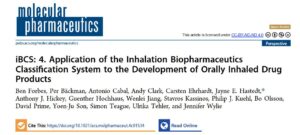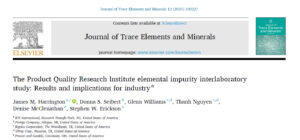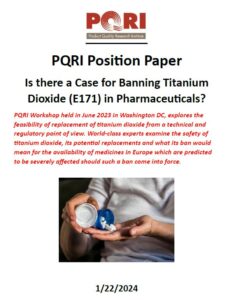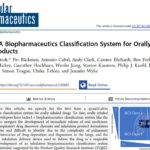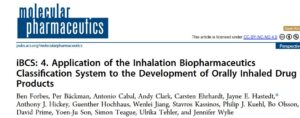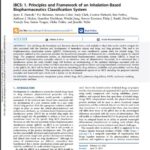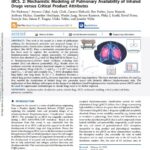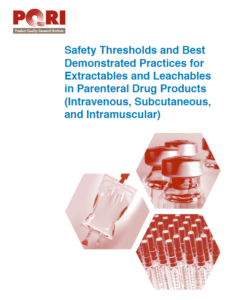PQRI Webinar: PFAS Restrictions – What you Need to Know and the Potential Impact Across the Pharmaceutical Industry and the Supply Chain Continuum – Presentations and Recording Available – see below
PQRI held a very important webinar to discuss the potential impact the polyfluoroalkyl substances (PFAS) ban proposed by the European Chemicals Agency (ECHA) may have on the supply of pharmaceutical products and the patients who use those products. This complimentary 90-minute webinar was held on August 8, 2023. A PDF copy of the presentations is available here. You can view the recording here.
PQRI Comments on ECHA’s Proposed PFAS Ban Across the Pharmaceutical Industry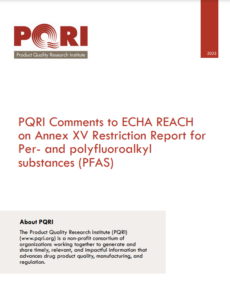
PQRI launched a questionnaire to gather information on the impact of the polyfluoroalkyl substances (PFAS) ban proposed by the European Chemicals Agency (ECHA) on the supply of pharmaceutical products and the patients who use those products.
PQRI used this information to prepare a position paper that captures the scale of the impact of ECHA’s proposed PFAS restrictions across the pharmaceutical supply chain. The unique scientific challenges faced in replacing PFAS or PFAS-containing products cannot be fully understood without crucial evidence for use. The position paper was submitted to ECHA on September 23, 2023. A copy of the submission is available here.
BACKGROUND
On February 7, 2023, ECHA published the Annex XV Restriction Report, which proposes a PFAS ban aimed at significantly affecting the manufacture, marketing, and use of approximately 10,000 types of PFAS. These chemicals are categorized as polymers and non-polymers, which contain multiple classes and have various applications across a wide range of industries. Manufacturers and importers would no longer be able to supply downstream users with PFAS or PFAS-containing products once the proposed restriction comes into force.
As per Annex XV, the current proposed restriction provides two risk management options:
-
- “no derogations and a transition period of 18 months”
- “a full ban with use-specific time-limited derogations (18 month transition period plus either a five or 12 year derogation period” (with sufficiently strong evidence.)
There is an exception for unlimited derogations for active substances. There is insufficient evidence for derogations with respect to PFAS usage throughout the pharmaceutical supply chain. The ECHA proposal is expected to be finalized in 2024 and effective by 2027. As currently written, it would likely have a significant impact on patient access to lifesaving medicines. |


